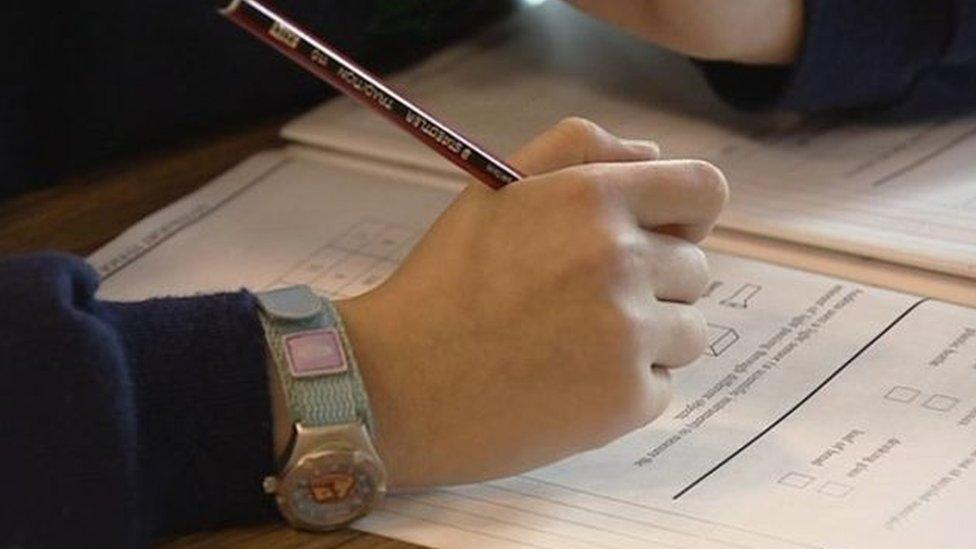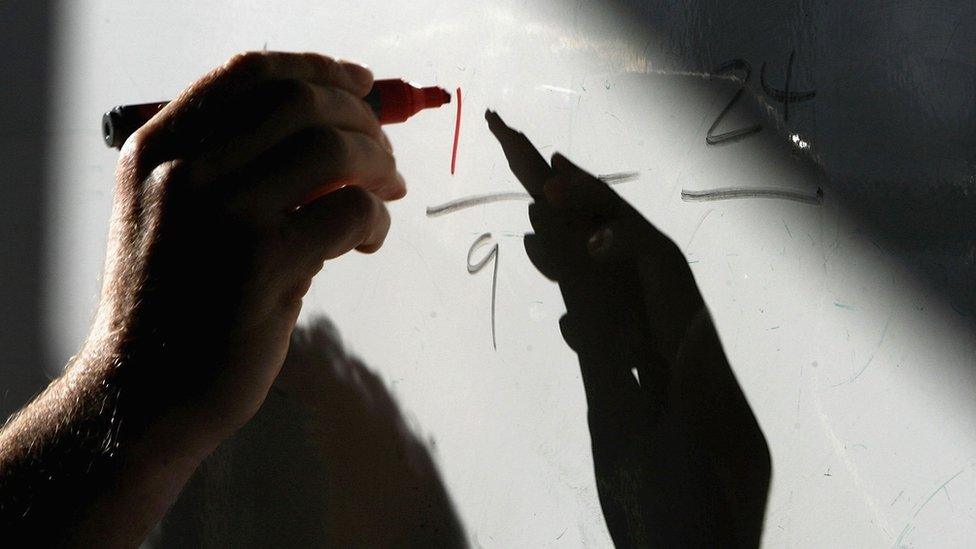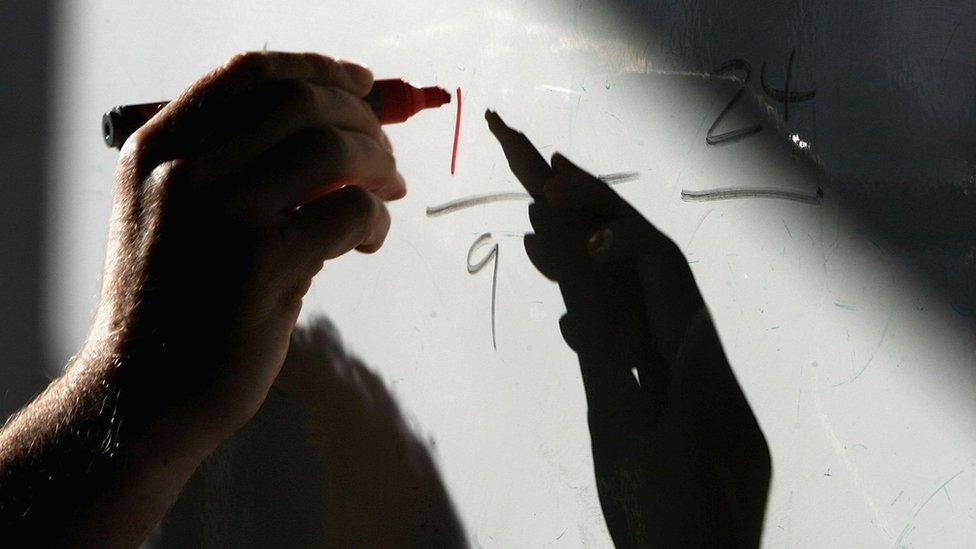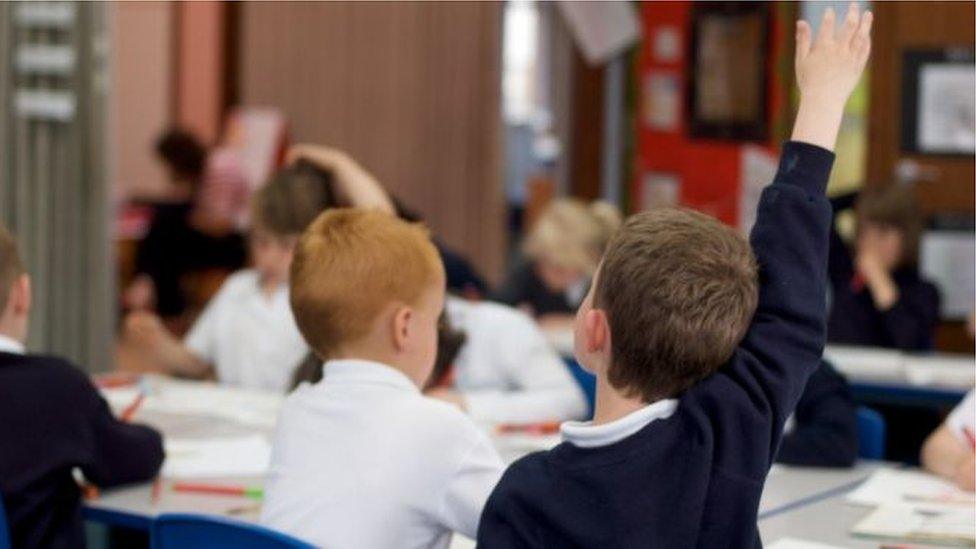Academic selection: Policy group criticises 'negative impact'
- Published
- comments

A policy group run by the Department of Education (DE) has criticised the impact of academic selection.
The department's strategic planning and policy development forum also criticised a number of the department's policies for promoting inclusion.
Academic selection concentrated "lower-achieving pupils, often from socially deprived areas, into a small group of 11-16 schools", the report said.
It added that NI's formal school leaving age should rise from 16 to 19.
The body was set up by DE in 2011 and its membership includes a number of departmental officials, teaching employers and trade unions.
Its function is to "work with the department to help shape and influence policy development and strategic planning before decisions are made".
It has been examining "how the education system might more effectively contribute to promoting inclusion and prosperity for all young people" since July 2015.
'Inconsistencies and incoherence'
The report was submitted to Education Minister Peter Weir in November 2016 and has just been published.
While it said that "our education system has many strengths", it also noted "high-level policy inconsistencies and incoherence" in a number of areas.
"There is still a long way to go in terms of ensuring that the great majority of our young people leave school with a high level of achievement," said the report.
This is despite more than two-thirds of young people leaving school with five or more GCSEs at grades A*-C, including English and Maths.
The report did not explicitly call for academic selection to be abandoned, but said that it had "negative influences".
It said selection leads to some children becoming uninterested in learning during Year 6 in primary school.
Further, it said the education system was "reflective of a divided society in terms of religious background, social class, ethnicity and disability".

The report recommends that only schools "which are non-selective and desirably co-educational" should be approved by the minister in future
"This social division is evident in the continuing existence of a selective and non-selective post-primary system," added the report.
It recommended that only schools "which are non-selective and desirably co-educational" should be approved by the minister in future.
"Our social and educational systems are tolerating and even perpetuating poverty," added the report.
Gap
"The disparity in educational and employment opportunities between pupils from families experiencing socio-economic deprivation and better off pupils is stark.
"The gap between the achievement of those individuals who come from relatively affluent families and those from deprived areas is getting wider and wider."
The report recommended that all young people should receive "continuous education" until the age of 19.
However, it said more professional and technical subjects and options should be available to young people aged 14-19, and called for closer links between schools and business and industry.
The report was also critical of DE's sustainable schools policy, saying it was "flawed from the start".
It cited aspects of the Polish and Finnish education systems as examples Northern Ireland could learn from.
However, it warned that "future policies will also struggle to have a meaningful impact unless education can become a positive driver for inclusion and prosperity rather than a contested political entity".
In a statement, Education Minister Peter Weir said he supported the right of schools to select on the basis of academic ability.
He added that he believed that every child, regardless of background, should have the opportunity to get into a grammar school, if it is their wish to do so.
- Published7 September 2016

- Published7 September 2016
